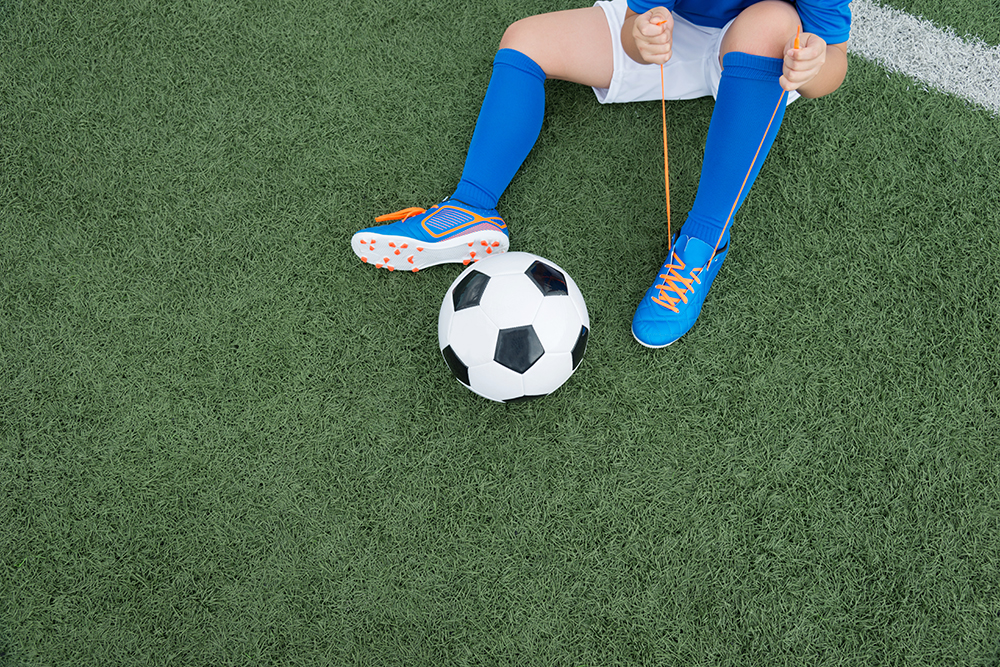4. SHOES: Use the right equipment.
Kids grow like weeds. You want to look at the equipment that your child is using — especially after a few months off — and make sure everything fits appropriately, including shoes, helmets and pads.
5. STRUCTURE: Play the right sport for your body type.
Talk to your child’s doctor, coach or a sports medicine specialist about the sports and positions that work best with their body type. Certain bone and muscle structures are best suited for certain activities, but put an athlete at a greater injury risk in others. For example, an athlete with loose ligaments might be prone to injury as a pitcher, but could safely play third base.
6. SUPPER: Get the proper nutrition.
Nutrition is a big deal. Make sure your child has a proper diet, especially during growth spurts, when their body is demanding a lot of energy. If not, it could lead to significant injuries with long-term impacts.
Prevent minor injury now to avoid major problems later.
Often, one injury leads to another. So young athletes should do everything they can to prevent injuries in the first place — like following the seven rules above.
If you need advice or information, contact Connecticut Children’s Sports Medicine. We’re here to help.


